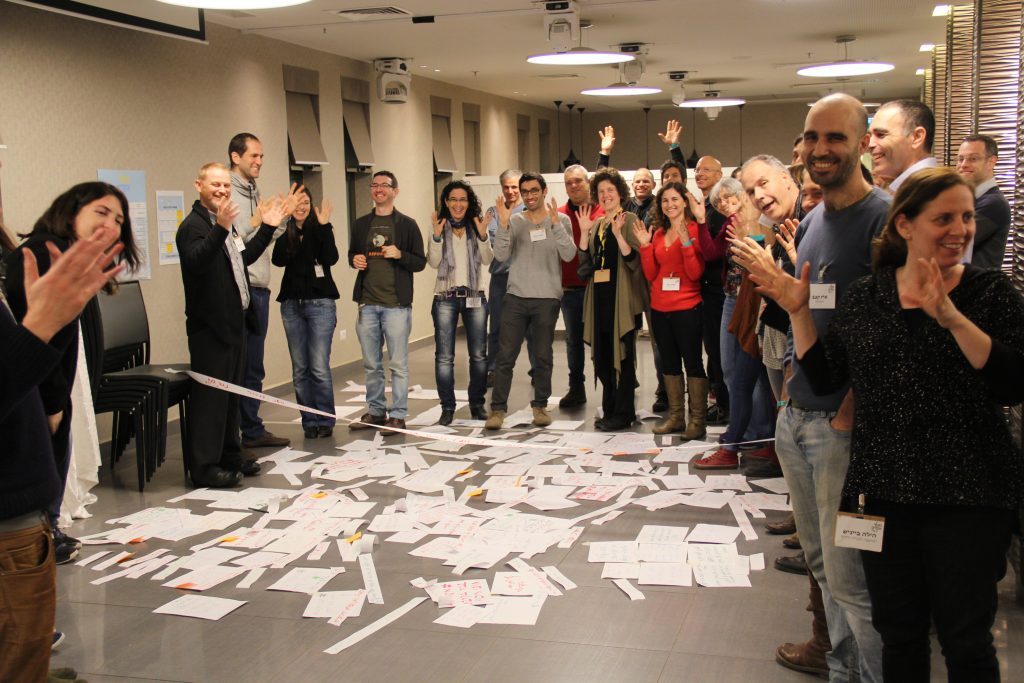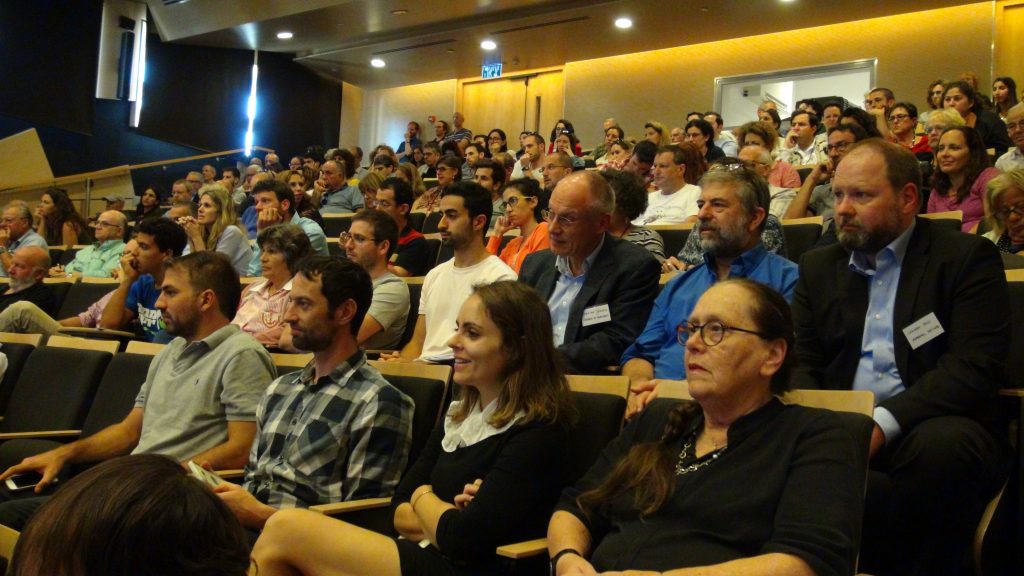The countries of the world have embarked upon an incredible challenge – to limit global warming to an increase of 1.5 C. The UN’s IPCC report in October 2018 warned that there is a window of opportunity to address climate change by 2030, at which point the world will reach a point of no return.
Climate research has shown that the Middle East is warming at twice the global average. Forecasts based on th data–and assum “business as usual” scenario– suggest that areas in the southern Mediterranean will reach an average temperature of 46 degrees celsius (114.8 Fahrenheit) by the middle of this century. Already today, we are witnessing in Israel clear signs of climate change and its resulting phenomena.


Since the 2015 Paris Accords (which Israel signed), there has been an unprecedented response from governments, civil society, cities, businesses and industry to achieve these ambitious benchmarks. Around the world, courage and creativity are being mobilized to bring about policy change in order to transition to a carbon-free economy as well as to increase resilience and adapt to accelerated changes in the climate and the environment. This is a real revolution in all areas of life, and will require changing the energy system, economy, water, agriculture, food, construction, transportation, urban planning, and more.
The Paris Accords and the commitment to create a long-term plan
On April 22, 2016, the Israeli government signed the Paris Agreement alongside 196 countries around the world. The agreement was ratified by the government on November 14, 2016. The agreement stipulates that the countries must formulate long-term plans and present them to the UN by 2020 (the target has since been postponed).
Learning from the national process of the German government to set goals and plan for 2050
During 2017 we conducted a learning process from a national process of the German government and hosted the head of the scientific team that accompanied the German government in building a national plan for climate change for 2050 in a multi-sectoral collaborative process. We learned that the German government has set ambitious goals, and marked a new roadmap on how to reach them. The Germans saw these plans as the engine of growth of the German economy and through the plan they seek to lead and serve as a leader and example for the world’s economy. We learned that creating clarity about the direction in which the economy is heading created tremendous momentum, a change of direction and a diversion of investment in the business sector even before they began to take policy measures.

Starting the process of building a national plan for 2050
Following the learning session on the climate program in Germany and other processes, interest and recognition grew among a number of government and foreign officials that Israel should also formulate a long-term strategic plan for a “low-carbon, healthy and efficient Israeli economy.” A program to be built with the participation of all relevant stakeholders, including government, industry, academia, local government and civil society.
In November 2018, at the opening of the third Israeli Climate Convention, organized by the Heschel Center and partner organizations, 11 roundtables were held with the participation of about 150 experts from academia, representatives of organizations and civic bodies that dealt with a variety of climate change issues and formulated civil society’s ambitious, necessary and possible goals for the Israeli government.
In light of this, a working team was formed to plan the process, joined by the OECD, which agreed to accompany the Israeli process of formulating goals and a work plan for 2050.
The purpose of the program was to lead a collaborative, multi-sectoral process, inspired by the lessons learned from the German experience. The process was designed to formulate a national plan of the Israeli government to deal with climate change on a variety of issues that may determine the character of the State of Israel and ensure continued prosperity. The purpose of the process is to create a sense of urgency and engage stakeholders in the process and implementation of goals, in order to create a shared vision, roadmap, and division of responsibilities. We were hoping that as a result of the process, the groups will create guiding principles for the specific content areas by 2050 while leaving room for innovation, the transition to a carbon-free economy and dealing with the consequences of climate change. The desired outcome of the process was a government decision that monitors the progress of the targets.
The value of a multi-sectoral participatory process for the State of Israel regarding climate goals
- Formulation of understandings and agreements between relevant stakeholders regarding the current situation, including understanding the main issues, challenges and opportunities in the field.
- Formulation of a common future picture based on a new and creative paradigm adapted to the expected changes in the various areas (housing, transportation, water and food, consumption, energy and more).
- Formulation of agreed and shared courses of action for all stakeholders in charge of implementing the plan.
- Improving the functioning of the government and saving resources - Cooperation between all sectors and the formulation of a national plan will enable synchronization in one direction of the various government ministries, which sometimes operate in conflicting directions, for efficiency and resource saving.
- Clarity regarding the short-term plans of the state - Formulation of a long-term vision will facilitate the construction of short-term plans that will derive the plans and immediate goals from the long-term goals.
- Harnessing the civic movement - creating a broad common base for civic cooperation and increasing the chances of supporting the program.
- Improving the chances of realizing the plan - A multi-sectoral collaborative procedure with all stakeholders can identify and harness new partners to implement and increase the chance that people will feel partners in formulating the goals and the plan and increase the chances of realizing it.
- Improving dialogue and trust between the government, local authorities, the business sector and civil society - Creating a national plan in consensual collaborative dialogue may improve the level of trust between the various sectors and the inter-sectoral means of communication
- Marking investment channels - Creating clarity regarding the strategic goals of the State of Israel will make it possible to create the necessary conditions that will allow the Israeli economy to compete with the world economies that are free of carbon dependency and will create clarity for industry, businesses and citizens regarding investment and development channels.
- Expanding the democratic range in a multi-sectoral collaborative process.
The formation of working groups and the continuation of the process
